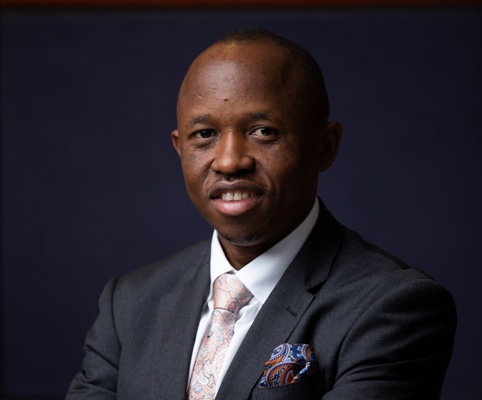Uganda Baati and SAFAL Group leadership, presenters and panelists pose for a group photo during yesterday’s session.
Uganda Baati, a giant in providing customized roofing solutions, in Uganda and the region has spent the most part of this week tipping hardware dealers on how to have their businesses survive beyond the second generation.
This, in an Annual Dealers Conference 2022 at the Speke Resort in Munyonyo.
The conference that concludes today is being held under the theme: “Partnerships for shared success” has hundreds of dealers across the country in attendance.
Speaking to the media yesterday, the Company’s Business Head, George Arodi, said Uganda Baati’s journey over the years has been characterized by product innovation, anticipating and satisfying customer needs as well ensuring employee welfare through engaging in various internal programs.
“We cherish our partners and the key partners that we have on the market is distribution. The dealers account for about 60% of our total sales,” Arodi, revealing that the engagement with the dealers is “For us to be able to share ideas.”
“To hear our dealers in terms of the areas that we do right and the areas that we actually have to work on for the purpose of improvement, give them our story in terms of our brands and what is there in them in terms of how they can be able to run their businesses successfully,” Arodi said.
According to Arodi, the presentations being undertaken during the conference on running the family business is to arm “our dealers with how they can actually be able to run the family business for posterity.”
“That important to us. We are not giving the dealers what we want them to hear but what we can give them for their businesses to be able to thrive,” Arodi noted.
Arodi says that most of the hardware shops are actually family businesses, explaining that “They are not well structured like the way private companies or limited companies.”
“How we have related throughout the years and through the research shows that they don’t actually be able to go beyond the second generation and we want to unpack the reasons why they can’t actually be able to grow through the second generation because their presence and their business continuity is also very prime for the continuity of our business,” Arodi said.
Uganda Manufacturers Association – UMA Executive Director, Daniel Birungi, commended Uganda Baati for setting the stage for engagement.
“We commend Uganda Baati for this conversation to say how we work together to ensure that the product sent to the market is affordable for everyone involved,” Birungi said.
Away from Uganda Baati’s current distribution channels, the company has also embraced e-commerce platforms to aid ease of doing business.
“What we have realized is that customers seek more and more convenience because they don’t have the time (to the bank and withdraw the money and pay, walk to the shop and be able to create that order) so, how can we make the convenience. We looked at the e-commerce platform which came not only for Uganda Baati but across the whole group. Operations are to bring that convenience to the customers in terms of how they make orders and get the materials delivered without physically walking to a hardware shop,” Arodi said.
According to Anthony Nganga, the Safal Group Marketing, Communication and External Affairs Director, the Group established the e-commerce platform to make sure that those who start online are able to finish online.
5 or 10 years from today, he said, “a lot of purchases will be online but we are starting the journey now.”
Growing a family business
Dr. Peter Kimbowa, Global leadership catalyst, was first to make a presentation lasting nearly 45 minutes and soon after he started his presentation, you could hear a pin drop.
According to Kimbowa, all big companies start very small, “but family businesses have had a different way in which they have excelled, because of their togetherness and commitment.”
“We have to bring the family together so that they can have a sense of ownership for the businesses and are able to take responsibility when the need arises,” Kimbowa told participants.
Dr. Kimbowa says that it is very important for business owners to demonstrate a plan for continuity within a family business by making plans for the future that involve and are beneficial for each member of the family.
“They’re 4 questions that a parent should ask their child: What would you like to understand about the business? What challenges do you see this business facing? Would you like to solve these challenges together? Where do you see this business in the future?” Dr. Kimbowa noted.
Speaking from the panel, Arodi said that creating interest amongst family starts at a young age.
“Deliberate Interventions have children involved in the work we do and have them pursue an education that can eventually contribute to the business,” Arodi said.
Construction and Hardware Dealers Association (CHADA) Chairman, Abbas Mutyaba, says that it is essential to instill the right culture in our family to enable them work together towards ensuring that a family business continues to stand the test of time.





